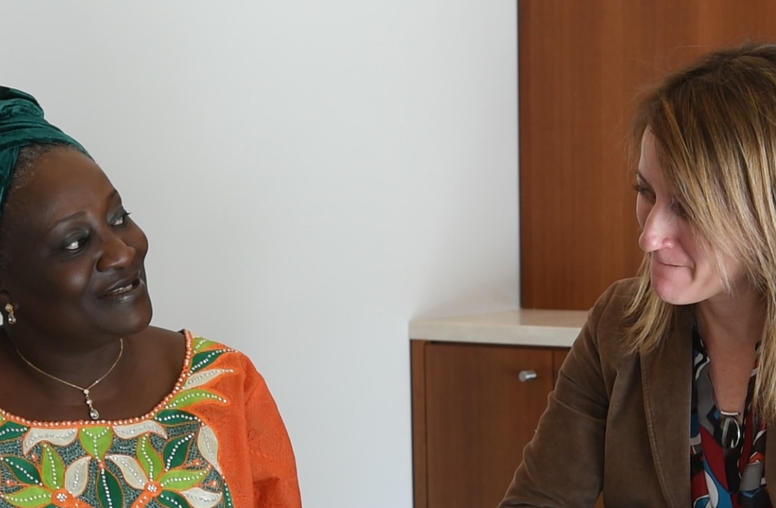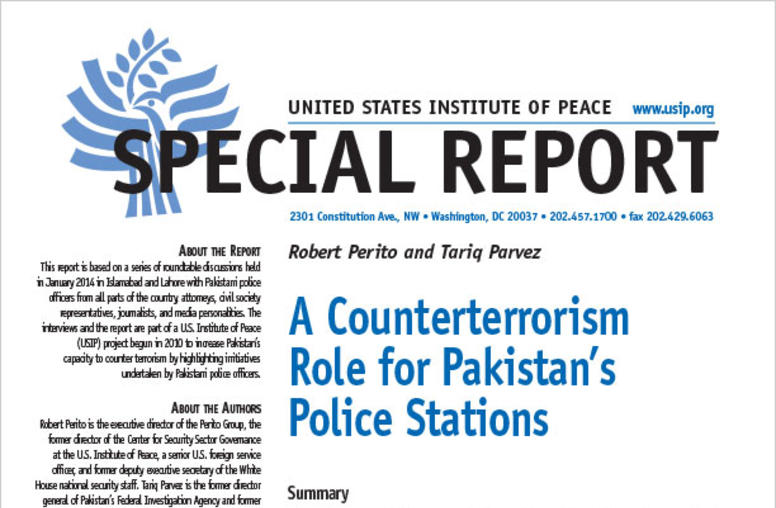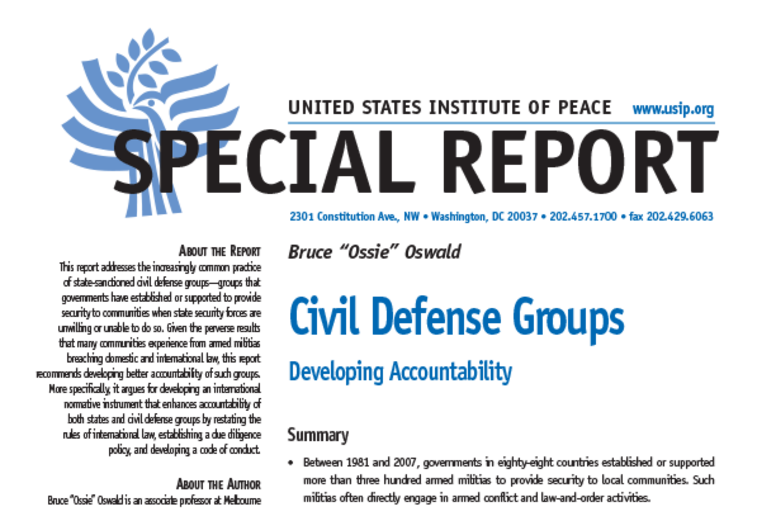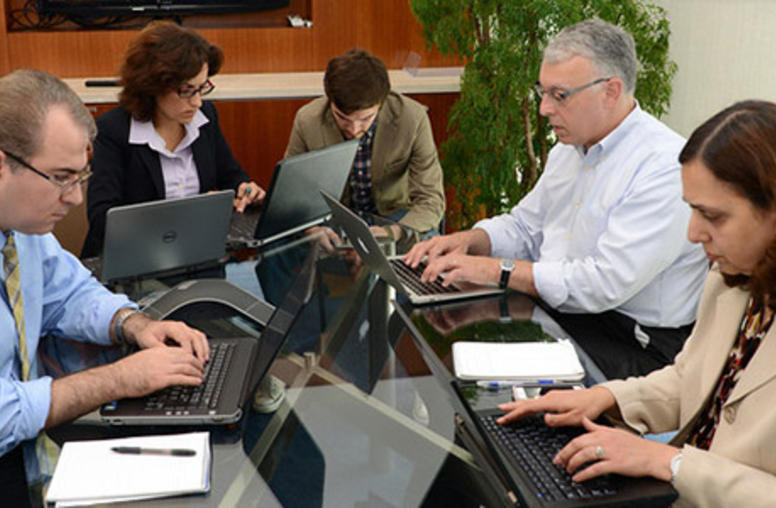The Interior Ministry's Role in Security Sector Reform
Efforts to create an effective interior ministry and a professional and community oriented police force cannot succeed unless they are part of an overall effort for security sector reform. SSR, a relatively new concept, refers to the highly political and complex task of transforming the institutions and organizations responsible for dealing with security threats to the state and its citizens.
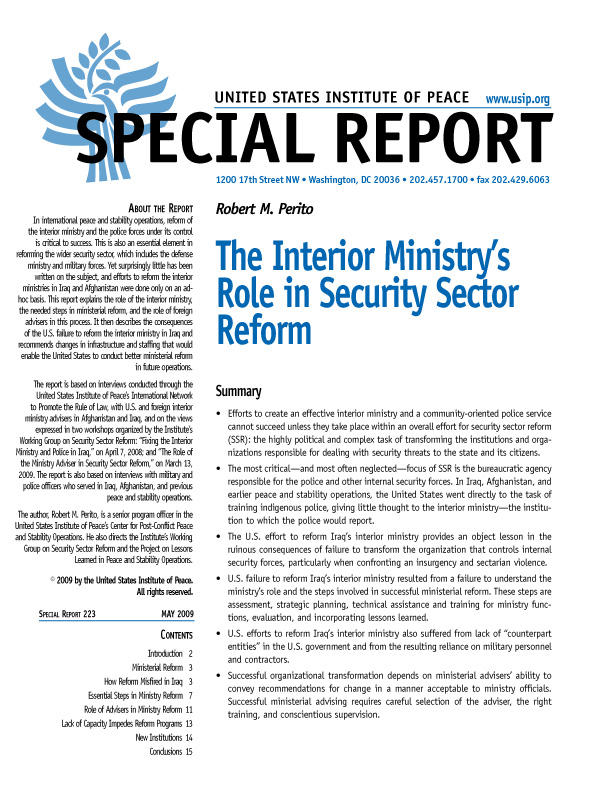
Introduction
The United Nations defines the "security sector" as "the structures, institutions and personnel responsible for the management, provision and oversight of security in a country." The institutions involved include those concerned with defense, law enforcement, corrections, intelligence, border management, customs, and civil emergencies, as well as the courts and tribunals adjudicating cases of criminal conduct. The UN definition also includes institutions responsible for the management and oversight of security, such as the executive and its ministries, legislative bodies, and civil society groups. Nonstate actors such as traditional authorities, militias, and private security services are also included. The United Nations sees SSR as "a process of assessment, review and implementation as well as monitoring and evaluation led by national authorities that has as its goal the enhancement of effective and accountable security for the state and its people without discrimination and with full respect for human rights" (UN Secretary General 2008).
Not everyone completely accepts the UN definition for SSR, and there are heated debates over which institutions and activities fall within the reform process, and which should be excluded. There are also questions about SSR's most effective application. SSR can be a tool for conflict prevention and management, but the greatest attention has been focused on its applicability to post-conflict reconstruction. After repeated failures, it is increasingly acknowledged that foreign interventions that end with the training and equipping of indigenous security forces are unlikely to succeed. Instead, a comprehensive, whole-of-government approach by the host government and the countries participating in the intervention is needed to reform simultaneously all the institutions, both military and civilian, that are involved in providing security. The goal is a safe and secure society that enjoys good governance and operates under the rule of law (McFate 2008).
Along with the United Nations, the Organization for Economic Co-operation and Development (OECD), through its Development Assistance Committee, has emerged as a leader in the SSR field. The OECD's policy on SSR was endorsed at an April 2004 ministerial meeting of its thirty member countries, including the United States. Later the policy was spelled out in a widely accepted SSR handbook that has become the basis for the SSR polices of most Western governments. According to the handbook, the basic approach for an effective SSR process consists of (1) local ownership, with a basis in democratic norms, human rights principles, and rule of law; (2) a whole-of-government approach involving donor and host nation agencies and civil society; (3) a broad assessment of the full range of security and justice needs of the population and the state; (4) the basic principles of good governance, including transparency and accountability; and (5) improvement of the human capacity required to make reformed institutions function in an effective and just manner (OECD 2007).
Of these principles, the most important is the host country's involvement and concurrence in SSR efforts. The stated objective in all peace and stability operations is to transfer responsibility for maintaining security from international forces to local military and police forces as quickly as possible. But this cannot be done effectively unless competent leadership is in place and violence and illicit gain are no longer the determining factors in political outcomes. The timing of the transition to local authority must be conditioned on the willingness and capacity of domestic institutions to govern by the rule of law and with the general consent of the population (Hartz, Mercean, and Williamson 2005).
Local ownership can be difficult to secure, because SSR can change existing power relationships and threaten vested interests. A wide range of local actors may have conflicting perspectives and priorities. There may also be a lack of local human capacity and financial and material resources. The long time horizon for SSR inevitably produces problems with donor coordination and donor fatigue. Major donors may be diverted by new crises or new priorities or may lose interest before local institutions are fully ready to assume responsibility for security (McFate 2008). One of the most important principles for international donors in SSR programs is to "do no harm," by closely monitoring events so that initiatives do not produce unintended negative consequences. Donors must ensure that assistance programs reduce rather than aggravate tensions and that they do not empower warlords, extreme nationalists, and other undemocratic forces.
About the Report
In international peace and stability operations, reform of the interior ministry and the police forces under its control is critical to success. This is also an essential element in reforming the wider security sector, which includes the defense ministry and military forces. Yet surprisingly little has been written on the subject, and efforts to reform the interior ministries in Iraq and Afghanistan were done only on an adhoc basis. This report explains the role of the interior ministry, the needed steps in ministerial reform, and the role of foreign advisers in this process. It then describes the consequences of the U.S. failure to reform the interior ministry in Iraq and recommends changes in infrastructure and staffing that would enable the United States to conduct better ministerial reform in future operations.
The report is based on interviews conducted through the United States Institute of Peace's International Network to Promote the Rule of Law, with U.S. and foreign interior ministry advisers in Afghanistan and Iraq, and on the views expressed in two workshops organized by the Institute's Working Group on Security Sector Reform: "Fixing the Interior Ministry and Police in Iraq," on April 7, 2008; and "The Role of the Ministry Adviser in Security Sector Reform," on March 13, 2009. The report is also based on interviews with military and police officers who served in Iraq, Afghanistan, and previous peace and stability operations.
The author, Robert M. Perito, is a senior program officer in the United States Institute of Peace's Center for Post-Conflict Peace and Stability Operations. He also directs the Institute's Working Group on Security Sector Reform and the Project on Lessons Learned in Peace and Stability Operations
